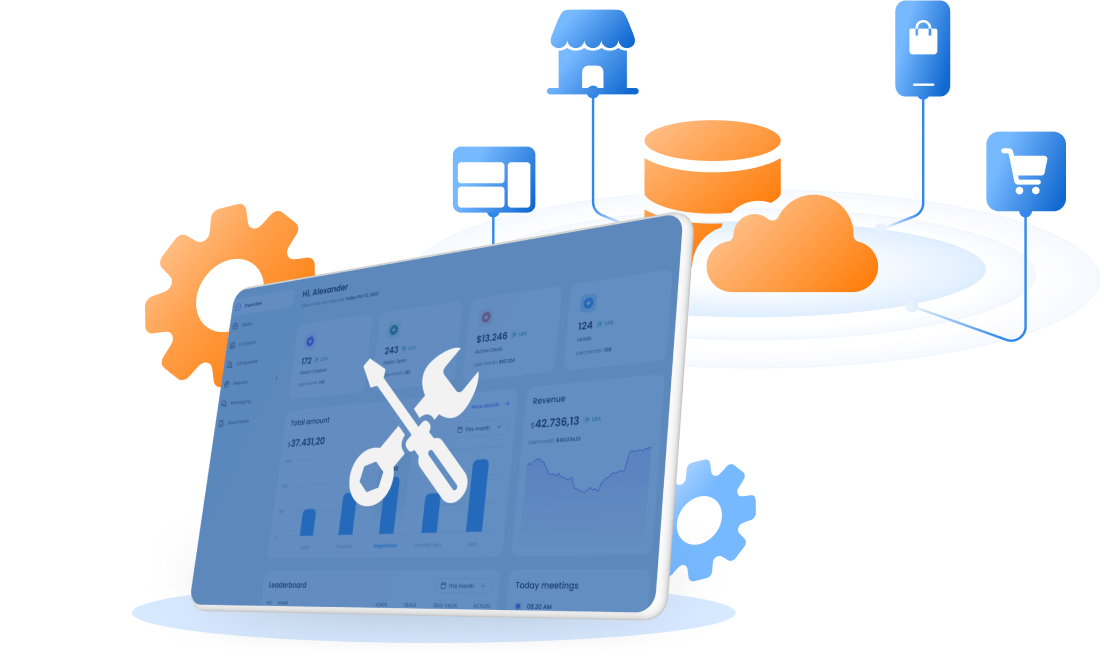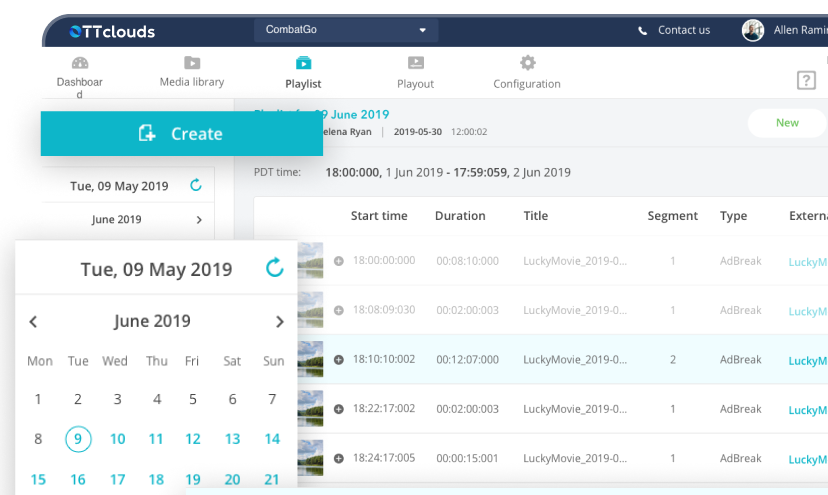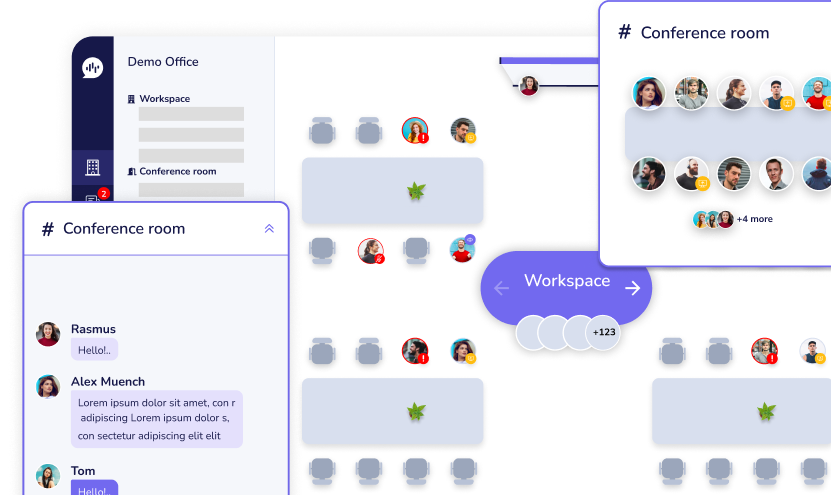Offshore software development services: Common terms you should know
26/07/2023
825
Table of Contents
Are you facing difficulties in seeking for IT talents for your business? Well, you are not alone! According to THE 2022 GLOBAL TALENT SHORTAGE report by ManpowerGroup, 21 countries are recorded higher talent shortages than global average. IT & Technology ranks #1 top industries with the highest talent shortages. Though tech giants are announcing to discharge hundred thousands of employees worldwide, causing the global lay-off wave, IT talents are forecasted to still in high demand, especially those who obtain AI, machine learning, cybersecurity, cloud computing skills.

In order to stay ahead of the competition, businesses need to ensure its human resource stability. While seeking for the optimal solutions, business owners consider offshore software development an old-school, yet effective, lifesaving package. The allure of accessing top-notch talent, reducing costs, and scaling operations has made offshore development an enticing option. But beware! Successfully navigating this realm comes with its fair share of challenges.
Enter the world of offshore development, where managing performance can be as exhilarating as sailing through rough waters. We have just the knowledge buoy you need to stay afloat. In our latest educational blog post, we dive deep into the common terms every business owner should know to harness the true potential of offshore software development services.

Understanding Offshore Software Development Services
Definition of offshore software development services
Offshore software development services refer to the practice of outsourcing software development tasks or projects to external teams located in a different country or region. Instead of relying solely on in-house resources, businesses collaborate with offshore development teams to leverage their expertise, cost advantages, and scalability. By partnering with offshore service providers, companies gain access to a global talent pool, enabling them to accelerate development cycles and bring innovative solutions to market faster.
Benefits of offshore software development services
- Cost-effectiveness: One of the most significant advantages of offshore software development services is cost reduction. By choosing offshore providers, businesses can tap into regions with lower labor costs, allowing them to allocate their budget more efficiently. This cost advantage enables companies to invest in other areas of their business or allocate resources to additional development projects.
- Access to skilled talent: Offshore software development services offer businesses access to a diverse and highly skilled talent pool. These offshore teams often possess specialized expertise and experience in specific technologies or industries. By collaborating with offshore professionals, businesses can leverage their knowledge and skills to build cutting-edge software solutions that meet their unique requirements.
- Scalability and flexibility: Offshore software development services provide businesses with the flexibility to scale their development efforts quickly. As projects evolve or new opportunities arise, offshore teams can quickly ramp up resources or adjust the team size accordingly. This scalability allows companies to respond rapidly to market demands, ensuring efficient project execution and timely product delivery.
Addressing challenges in offshore software development services
- Performance management: Managing the performance of offshore development teams can be a challenge due to geographical distance, cultural differences, and variations in work practices. To overcome this challenge, it is crucial to establish clear communication channels, set expectations, and implement effective project management methodologies. Regular monitoring, progress tracking, and performance evaluation help ensure that projects stay on track and meet quality standards.
- Communication and language barriers: Effective communication is vital for successful offshore development. Language barriers, different time zones, and cultural nuances can hinder communication and collaboration. To address this challenge, it is essential to establish clear communication protocols, leverage collaboration tools, and foster a culture of open and transparent communication. Regular video conferences, documentation, and the use of project management tools can help bridge communication gaps and ensure effective collaboration.
- Time zone differences: Offshore often involves teams located in different time zones. While this can be advantageous for round-the-clock productivity, it also presents coordination challenges. To mitigate the impact of time zone differences, it is important to establish overlapping working hours, define clear expectations for response times, and leverage asynchronous communication methods such as email or project management tools. Effective time management and coordination are key to maximizing productivity and minimizing delays.
Importance of knowledge and preparation
To navigate the landscape of offshore software development successfully, knowledge and preparation are paramount. Business owners, product owners, and IT specialists must invest time and effort to understand the common terms and concepts associated with offshore development. This knowledge empowers them to make informed decisions, communicate effectively with offshore teams, and proactively address challenges. By preparing their teams and acquiring the necessary knowledge, businesses can lay a strong foundation for successful offshore collaborations, unlocking the full potential of offshore software development services.
Common Terms in Offshore Software Development

Agile development
Agile development is an iterative and collaborative approach to software development that emphasizes flexibility, adaptability, and customer collaboration. It involves breaking down the development process into small, incremental tasks called sprints, allowing for frequent feedback and continuous improvement. Agile development principles include valuing individuals and interactions, working software over comprehensive documentation, customer collaboration, and responding to change.
In the context of offshore development, Agile methodologies provide several benefits. They facilitate effective communication and collaboration between onshore and offshore teams, ensuring a shared understanding of project goals and requirements. Agile practices enable rapid iteration and quick feedback loops, allowing offshore teams to adapt to changing requirements and deliver valuable software increments consistently.
Scrum
Scrum is a specific Agile framework widely used in software development. It provides a structured approach to project management, enabling teams to organize their work, prioritize tasks, and optimize productivity. In Scrum, development work is divided into short time-boxed iterations called sprints, usually lasting two to four weeks. Each sprint involves planning, daily stand-up meetings, development, testing, and a review of the completed work.
Within the Scrum framework, several key terms and roles are important to understand. These include the product owner, responsible for defining and prioritizing the product backlog; the Scrum master, who facilitates the Scrum process and ensures the team adheres to Agile principles; and the development team, responsible for delivering the software increment during each sprint. Scrum provides a transparent and iterative approach to software development, making it well-suited for offshore teams collaborating with onshore counterparts.
DevOps
DevOps is a set of practices that integrates software development (Dev) and IT operations (Ops) to enhance collaboration and improve the software delivery process. It aims to streamline workflows, automate processes, and foster a culture of collaboration and continuous improvement. DevOps encompasses areas such as infrastructure automation, continuous integration/continuous delivery (CI/CD), and monitoring and feedback loops.
In the context of offshore software development, implementing DevOps practices can bring significant benefits. It enables smoother collaboration between onshore and offshore teams, ensures faster and more reliable software deployments, and enhances overall project visibility and transparency. DevOps principles promote efficient communication, standardized processes, and rapid feedback cycles, leading to improved productivity, quality, and time-to-market for offshore development projects.
Dedicated development team
A dedicated development team refers to a group of specialized software developers and professionals who work exclusively on a specific project for a client. Unlike traditional outsourcing models, where tasks are assigned to different teams or individuals, a dedicated development team remains focused on a single project, providing continuity, consistency, and a deep understanding of the project requirements.
The advantages of a dedicated development team in offshore software development are numerous. It allows for greater control and flexibility over the development process, as the client can directly manage and communicate with the dedicated team. The team members become intimately familiar with the project, its goals, and the client’s expectations, resulting in higher productivity and better alignment. Additionally, a dedicated team offers scalability options, allowing the client to adjust the team size based on project requirements easily.
Within a dedicated development team, roles and responsibilities are clearly defined. They typically include software developers, quality assurance specialists, project managers, and other roles specific to the project’s requirements. This dedicated team structure fosters collaboration, accountability, and a shared sense of ownership, leading to efficient and successful offshore software development projects.
Best Practices for Managing Offshore Software Development Services
Preparing your team for offshore collaboration
To ensure a smooth offshore collaboration, preparing your team for the unique dynamics of working with an offshore software development service is essential. First, familiarize your team with common offshore software development terms and concepts. This will promote a shared understanding and effective communication with the offshore team. Additionally, establish clear communication channels, both synchronous and asynchronous, to facilitate seamless collaboration and timely information exchange.

Setting expectations and goals
Clearly defining project requirements and milestones is crucial for successful offshore software development. Ensure that your team and the offshore service provider understand the project’s scope, deliverables, and timelines. Communicate your expectations and goals to align everyone towards a shared vision. Regularly monitor progress and performance metrics to ensure the project stays on track and meets the desired outcomes.
Building strong relationships with offshore teams
Building strong relationships with offshore teams is a key factor in the success of your collaboration. Cultivate trust and cooperation by fostering open and transparent communication channels. Encourage regular interactions and establish a culture of inclusivity and respect. Regularly evaluate the progress and provide constructive feedback to address issues and foster continuous improvement promptly. Building a strong relationship with the offshore team promotes effective collaboration, enhances productivity, and improves overall project outcomes.
Leveraging project management tools and technologies
Project management tools and technologies play a vital role in managing offshore software development services. Leverage appropriate project management tools to facilitate efficient task tracking, document sharing, and communication. These tools can streamline project workflows, enhance visibility, and promote transparency. Collaborative platforms, version control systems, and task management software can also contribute to effective project management and streamline the coordination between your team and the offshore service provider.
Conclusion
It is important to reiterate the significant advantages that offshore software development services offer to businesses. By opting for offshore development, companies can unlock cost savings, tap into a global talent pool, and achieve scalability and flexibility in their development projects. Offshore software development services provide opportunities to accelerate innovation, increase productivity, and gain a competitive edge in the market.
To navigate the complexities of offshore software development successfully, we emphasized the importance of acquiring knowledge and preparing your team. Understanding the common terms and concepts in offshore development allows you to effectively communicate with offshore teams, manage expectations, and overcome challenges. Educating yourself and your team will set the stage for fruitful and successful offshore collaborations.
Dig deeper into SupremeTech’s offshore development services
SupremeTech delivers multiple service lines to serve client’s individual needs flexibly. Explore our service lines and our expertise to find your best fit!
Book a free consultation with us now!
Related Blog





















